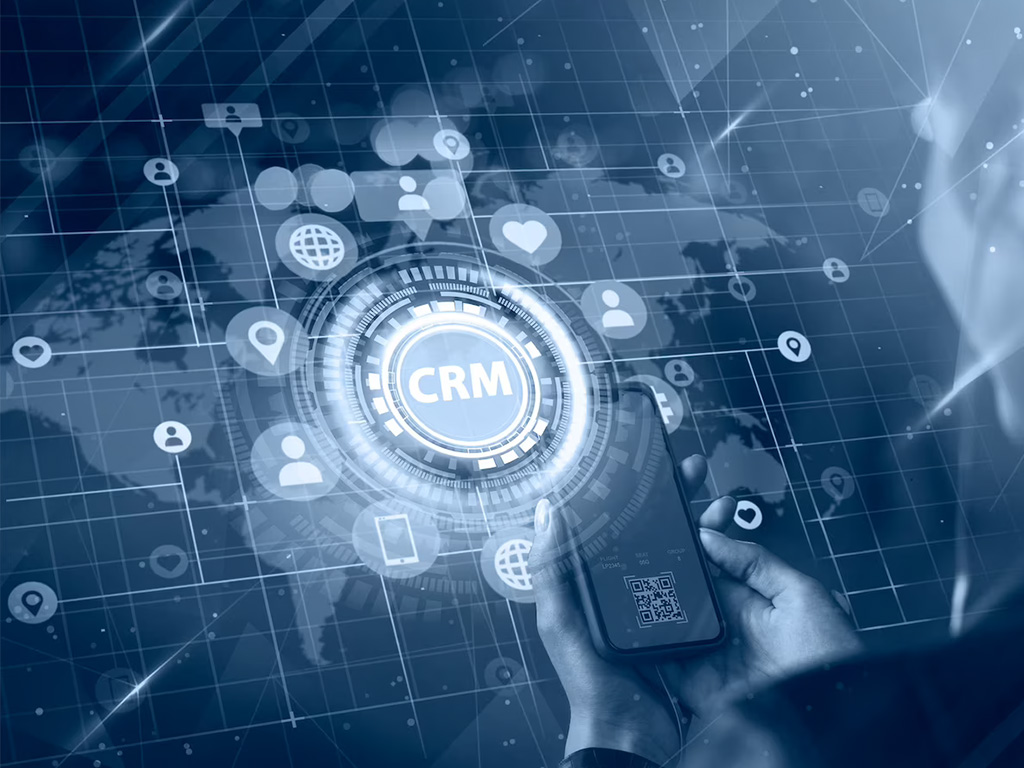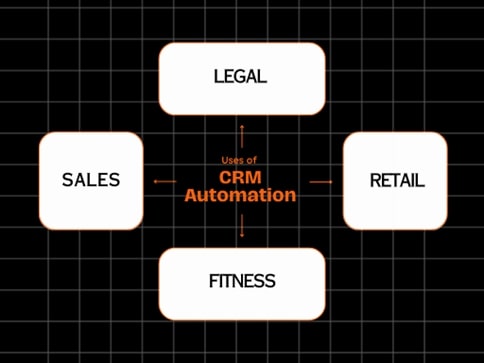CRM Automation: A look into AI in Lead Generation

Introduction
CRM systems are used by many B2B and B2C companies to organize their business processes and make complex tasks easier to complete. AI in lead generation takes the drudgery out of the time-consuming tasks of customer acquisition and management. Automating your customer relationship management system handles routine tasks such as calendaring, updating customer information, and data entry.
CRM automation is an efficient way to streamline the marketing-to-sales process. It encompasses various tools that automate workflows to save time and increase productivity. One of the primary features of CRM automation is marketing automation, which involves handling email marketing campaigns, data syncing, and using beautiful templates to attract potential customers. Another essential aspect is sales automation, which includes call scheduling, workflow automation, and automatic assignment of qualified leads to the sales team. Software bots, such as AI chatbots, can also provide exceptional customer service automation. With the AI in lead generation and CRM automation, businesses can improve their customer experience and increase their revenue while minimizing the manual workload for their team.

Understanding AI in CRM Automation
Artificial Intelligence (AI) is the simulation of human intelligence in machines, allowing them to grasp data, identify patterns, and make decisions based on that data. In Customer Relationship Management (CRM) context, AI can automate and improve various aspects of the customer experience.
- Lead Scoring: AI can analyze and score leads based on their behavior, demographics, and interactions with the brand. This helps sales teams prioritize their efforts on leads most likely to convert into customers, resulting in a more efficient sales process. Here are some of the main applications of AI in CRM automation:
- Chatbots: AI-powered chatbots can provide personalized and automated responses to customer inquiries, improving response times and reducing the workload of customer service teams.
- Sales Forecasting: AI can analyze historical data and identify patterns to forecast future sales performance. This helps organizations make informed decisions about resource allocation and revenue projections.
- Customer Segmentation: AI can segment customers based on their behavior, preferences, and demographics, allowing organizations to personalize their marketing and sales efforts for different customer groups.
- Predictive Analytics: AI can analyze large volumes of data to identify patterns and predict future customer behavior. This helps organizations identify opportunities and risks and make data-driven decisions to improve the customer experience.
- Customer Retention: AI can help organizations identify customers at risk of churning and proactively engage with them to prevent churn. This can include personalized offers, content, and incentives to keep customers engaged and loyal to the brand.
AI can provide many benefits regarding CRM automation, including improved efficiency, accuracy, and customer experience personalization. Organizations can streamline their sales and marketing processes by leveraging AI-powered tools and technologies, improving customer engagement, and driving revenue growth.
AI in Lead Generation
Lead scoring is an integral part of the lead generation process. It includes assigning a value or score to the leads based on their characteristics and behavior. Scores represent a prospect’s likelihood of becoming a customer, helping sales teams prioritize their efforts and focus on the most promising prospects.
How AI-powered lead scoring works
AI-powered lead scoring is an advanced technique that uses machine learning algorithms to evaluate and prioritize leads based on their behavior and characteristics.
Here’s how it works:
- Data collection: The first step in AI-powered lead scoring is collecting data about each lead. This can include their job title, company size, website activity, email interactions, social media behavior, and more.
- Data cleaning: Once the data is collected, it is cleaned and organized to ensure accuracy and relevance. This involves removing duplicate or outdated information, standardizing data formats, and filling in missing data points.
- Feature engineering: Next, the data is transformed into a set of features or variables that can be used to tutor the machine learning model. This involves selecting the most relevant components and engineering new features that may be useful in predicting the likelihood of conversion.
- Machine learning model training: The transformed data is then used to train a machine learning model, such as logistic regression, decision tree, or neural network. The model is trained on historical data, including converted and non-converted leads.
- Predictive scoring: Once the model is trained, it can predict the likelihood of conversion for new leads. The model assigns a score to each lead based on its characteristics and behavior, representing the likelihood that the lead will convert.
Benefits of using AI in Lead Generation
- Improved read accuracy:
AI-powered lead generation can analyze large amounts of data, identify patterns, and predict which leads will most likely convert into customers. This results in more accurate lead scoring and better lead prioritization.
- Improved efficiency:
AI can automate many aspects of the lead generation process, including data collection, lead scoring, and outreach. This reduces the workload on your sales team so they can focus on high-priority leads.
- Personalization:
AI can analyze customer data and behavior to personalize outreach and messaging. This will improve your customer experience and increase your chances of conversion.
- Scalability:
AI can be scaled up or down depending on the number of prospects and business needs. This ensures that leads are always noticed and your sales team can efficiently handle large volumes of leads.
- Savings measures:
AI-powered lead generation can reduce lead acquisition costs by automating many manual tasks and improving the efficiency of the sales process. This reduces the cost per lead and increases the ROI in marketing and sales efforts.
Setting up CRM Automation
Setting up the CRM Automation largely depends on what goals you want the CRM to achieve. Based on your company size and objectives, you can try various time-saving automation.
Our in-house software focuses on the following must-have CRM automation:
Extracting contact details: A customer’s contact details will be automatically captured if they try to contact you through your website or make a direct purchase. This way, you don’t have to make extra efforts to capture contact details from a potential client.
Segment contact list: Sorting through a vast contact list can be a hefty task. Our automation software allows you to segment your contacts into related lists based on past purchases or product interests.
Nurture New CRM Leads: Nurturing potential leads is crucial, especially when the prospect is on the verge of making a purchase. Our CRM automation software allows you to build relationships with prospects with automated welcome campaigns.
Set follow-up reminders: If you want to communicate with prospects or customers regularly, you can set automatic reminders to get back in touch and reconnect. This helps you keep the clients in the loop throughout the customer journey.
Apart from this, you can also integrate with other built-in integrations with additional tools to help you make your job easier. Some standard integrations include email integrations, social media integrations, marketing automation integrations, e-commerce integrations, customer support integrations, and project management integrations.
For any further details, contact us.
Conclusion
To summarize, AI in lead generation can provide businesses many benefits, including accuracy, increased efficiency, and personalization of customer experience. Businesses can streamline sales and marketing processes using AI-powered tools and technologies, improve customer retention, and drive increased revenue.
However, businesses should also be aware of AI-powered CRM automation’s potential challenges and limitations. For example, AI only excels with the data it trains on. Hence, companies must ensure they have high-quality data to train their algorithms. Additionally, AI-powered tools can be expensive to implement and require management expertise. Therefore, companies considering AI-powered CRM automation for lead generation should carefully assess their needs and resources and partner with a reputable AI vendor or consultant for successful implementation. It’s also important to regularly monitor and evaluate the performance of your AI-powered tools and make adjustments as necessary to ensure the expected results.
AI-powered CRM automation can provide a competitive advantage to companies looking to improve their lead generation and customer retention efforts. By investing in the right tools and expertise, organizations can harness the power of AI to drive growth and success in today’s fast-paced and competitive business environment.

